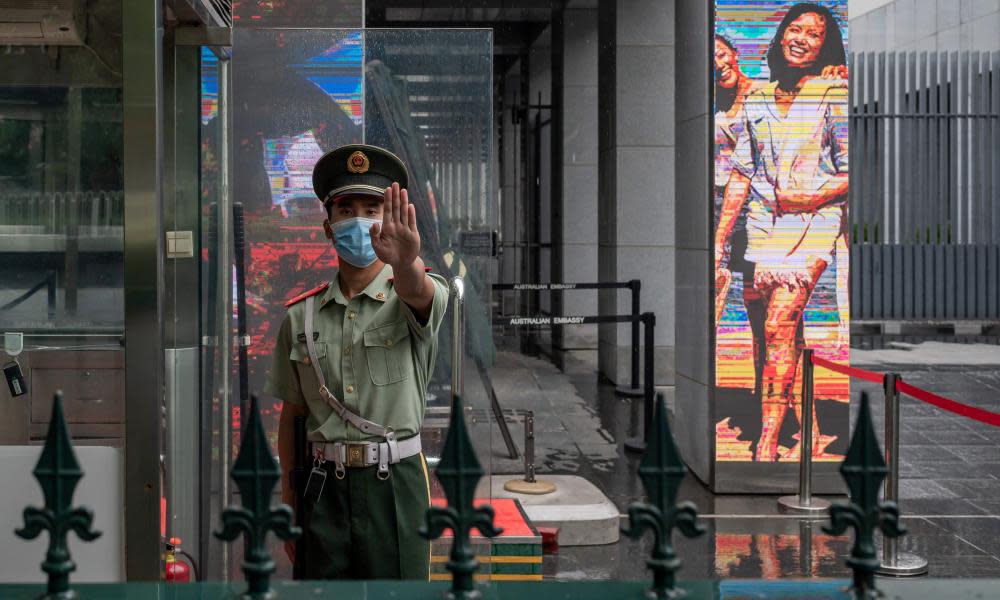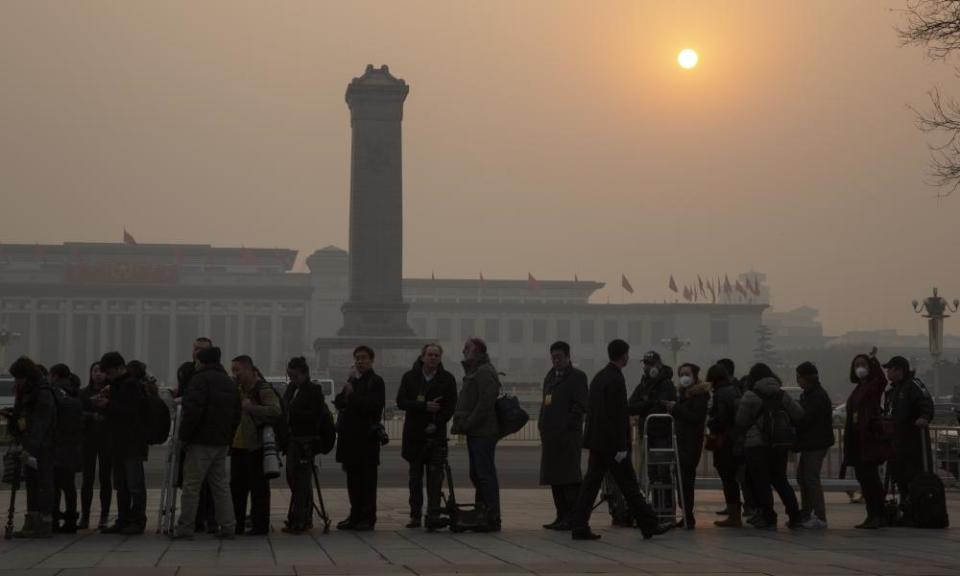How China's strained relationship with foreign media unravelled

Last Wednesday in the middle of the night, Australian reporters Bill Birtles in Beijing and Mike Smith in Shanghai received simultaneous knocks on the door of their homes. Outside were groups of state security officers, there to inform the journalists they were needed for questioning over a national security matter. In case they were thinking of leaving, they had also been placed under exit bans.
Smith had already packed his bags and Birtles was that night hosting a farewell party, having been warned by Australian government officials of an increased risk to their safety after the recent detention of another Australian journalist Cheng Lei.
Foreign reporting in China has historically been difficult, but under the increasingly hardline rule of Xi Jinping and amid growing antagonism against the US, Australia, and other countries, the situation has markedly deteriorated.
The treatment of Birtles, Smith and Cheng under the guise of “national security” has also added to fears Beijing had broken a silent contract to at least give the appearance of respecting the freedom of foreign press and was now willing to not only expel people, but also use them as bargaining chips in hostage diplomacy.
Related: Australia 'very disappointed' after journalists Bill Birtles and Michael Smith forced to flee China
The Foreign Correspondents Club of China believes the “appalling intimidatory tactics” of the Chinese government against foreign reporters now amount to circumstances that make it “untenable to remain in the country”.
“The effort to keep foreign journalists in China against their will marks a significant escalation of an ongoing, sustained Chinese government assault on media freedoms,” it said.
Just weeks ago, a reporter from the Los Angeles Times was violently detained and interrogated by authorities while she attempted to report on protests in Inner Mongolia. In the first half of this year, 17 journalists were expelled from the country, including journalists employed by US outlets the New York Times, the Washington Post, and the Wall Street Journal, collectively holding decades of experience and expertise. This month, several more US journalist were told they couldn’t renew their press cards. The Foreign Correspondents Club of China (FCCC) says Beijing is using visas as a weapon “like never before”.
The exit bans placed on Birtles and Smith are a relatively widespread measure used by Beijing to prevent people – often lawyers and dissidents – leaving China, but their use against foreign journalists represents a significant escalation.
Birtles told the ABC he felt their interviews – agreed to in return for a lifting of the exit bans – were harassment amid a “diplomatic tussle” rather than a legitimate part of an investigation.
There appear to be at least two elements driving Beijing’s new tack, experts say. One is retaliation. Beijing maintains the visa cancellations and delays were in response to the US government tightening restrictions on Chinese journalists and news outlets in the US and have threatened further countermeasures. The day after the Australians returned home, Chinese state media published coordinated reports on claims that Chinese journalists in Australia were raided by authorities in June, amid investigations into foreign interference.
Related: Cheng Lei: detained Australian at risk of torture in China, observers say
The second factor is Xi’s growing intolerance for the presence of foreign journalists. “The pesky thing about foreign reporters is we don’t stick to the playbook,” Anna Fifield, Beijing bureau chief for the Washington Post, told a Lowy Institute panel in April.

Foreign journalists were once useful to China, when they provided something of a link to the world’s business and investors. But that has changed and China eventually getting rid of all foreign correspondents was “not out of the realms of possibility” said Fifield.
China watcher Bill Bishop echoed her comments on Tuesday. “The PRC/CCP [People’s Republic of China/Chinese Communist party] cares far more about its ability to disseminate its messaging globally – key to its long-held goal of increasing China’s global discourse power – than it does about visas for its journalists in the US, and there are forces inside China that would be happy to throw out all the foreign reporters,” he said.
Related: How China uses Muslim press trips to counter claims of Uighur abuse
Intimidation, violence and surveillance
Foreign journalists report what the local press is unable to, and in recent years that has included mass human rights abuses in Xinjiang, corruption allegations in senior ranks of the Communist party, the internationally unlawful intervention in Hong Kong, increasing surveillance on people’s daily lives, and the attempt to cover up the coronavirus outbreak.
Xi has overseen a much tighter hold on Chinese society and crackdowns on potential dissent. Birtles echoed the concerns of many journalists when he said it had become increasingly difficult to get people to go on the record.
The FCCC’s 2019 annual report includes dozens of anecdotes from correspondents of intimidation, violence and surveillance in the field, and said 70% of correspondents had reported the cancellation or withdrawal of interviews, for reasons they knew or believed to be related to the authorities.
Interviewees who did speak to correspondents risked significant reprisals, including detention, interrogations and exit bans, the report said.
New York Times journalist Chris Buckley, who was among those expelled this year, said the situation was “pretty bleak”, but he wants to return. “It has become tougher, there’s no doubt about that,” he said. “Without understating the difficulties, it’s important to understand it’s an amazing story and can be a very rewarding place to be reporting as well.”
Foreign correspondents and human rights groups are quick to point out the situation is far more dangerous for Chinese journalists and media staff. China is the leading jailer of journalists in the world, according to the Committee to Protect Journalists, with at least 48 in jail.
Beijing says Cheng is suspected of national security offences, but her case is being compared to those of the Canadians, Michael Kovrig and Michael Spavor, targeted after a Chinese Huawei executive was arrested in Canada, and the detention of Australian writer Yang Hengjun after Australia banned Huawei from its 5G networks. Bishop warned the US “should not be surprised to have a Kovrig/Spavor-like situation in the PRC very soon”.
Richard McGregor, a former foreign correspondent and leading expert on China with the Lowy Institute, said other countries grappling with Beijing should take note of the treatment of the Australian journalists. “If their bilateral relationship deteriorates, then their own nationals will be in the firing line as well.”

 Yahoo News
Yahoo News 
